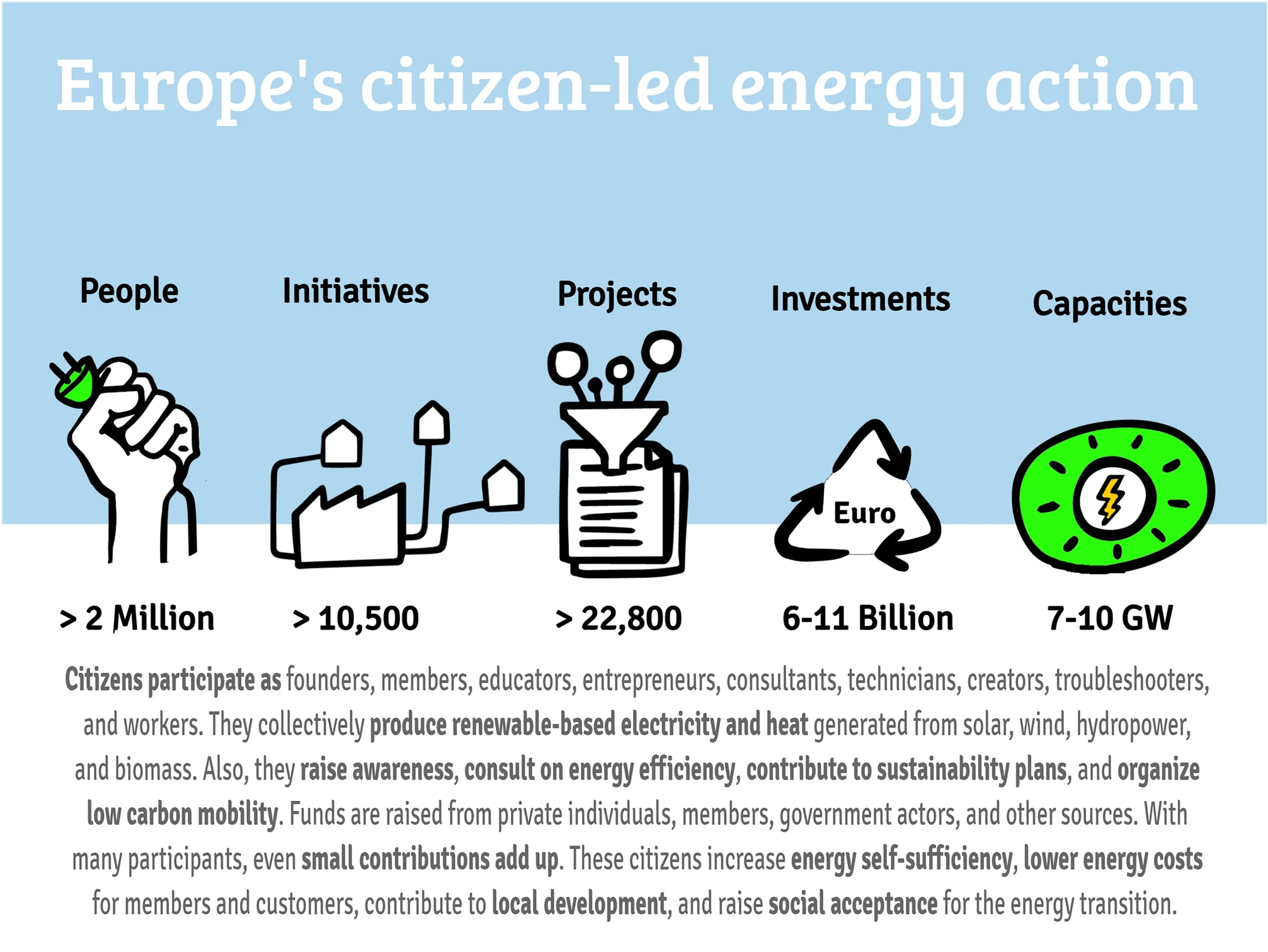
More than two million citizens across 30 European countries have been involved in thousands of projects and initiatives as part of efforts to transition to renewable energy, according to an analysis published in Scientific Reports. With investments ranging between 6.2 and 11.3 billion Euros, these findings highlight the important role of collective action in the decarbonisation of Europe.
The energy system in Europe is undergoing a significant transition towards renewables and decarbonisation. However, the contribution of citizen-led efforts, such as energy cooperatives, in this sphere is largely unknown.
Valeria Schwanitz and colleagues quantified the contributions of citizen-led energy initiatives towards the transition to low-carbon energy in 30 European countries between 2000 and 2021.They assessed the numbers of initiatives, people involved, specific energy projects, and renewable energy facilities installed, and the total funds invested.
The authors estimate that 10,540 citizen-led initiatives were recorded during this time period, examples of which include a renewable energy community in Borutta, Italy and an eco-village community in Sweden. Within these initiatives, 22,830 specific projects were undertaken such as the installation of wind turbines and solar panels on local buildings, and the promotion of behavioural change and climate action within communities. The authors estimate that 2,010,600 people collectively participated in these activities – including 391,500 individuals in Germany and 306,650 individuals in Denmark.
Additionally, the authors calculate that between 6.2 and 11.3 billion Euros were invested in citizen-led energy activities. This equated to investment of up to 5,700 Euros per individual. The installed renewable facilities had a capacity of between 7.2 to 9.9 gigawatts, and the authors calculate that these facilities produced between 8,500 and 11,700 kiloWatt hours annually per person involved in the initiatives. This approximately covers the electricity needs of a typical European household.
The authors conclude that more data and reporting standards are needed to develop comprehensive statistics for the contribution of citizen efforts to the energy transition in Europe.


